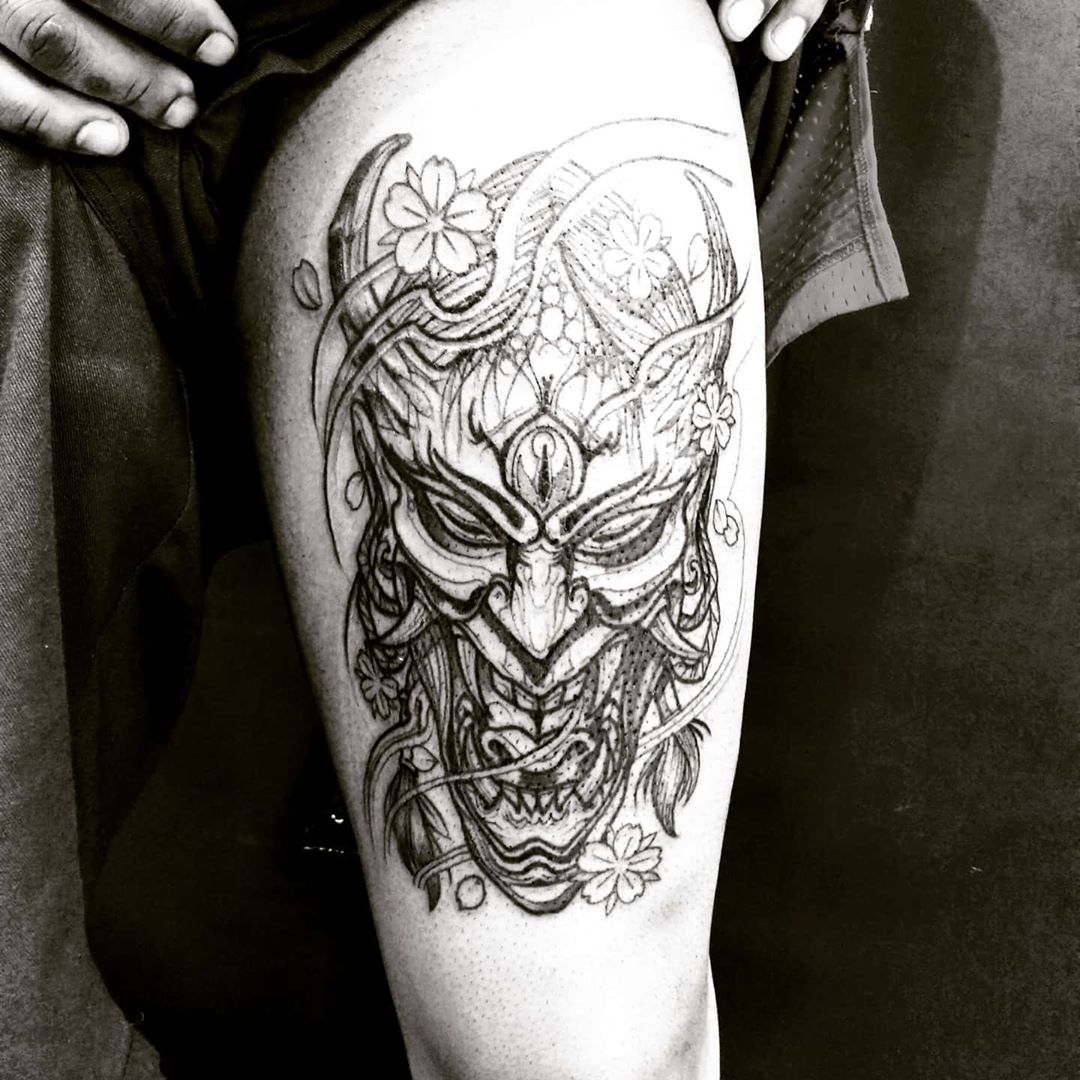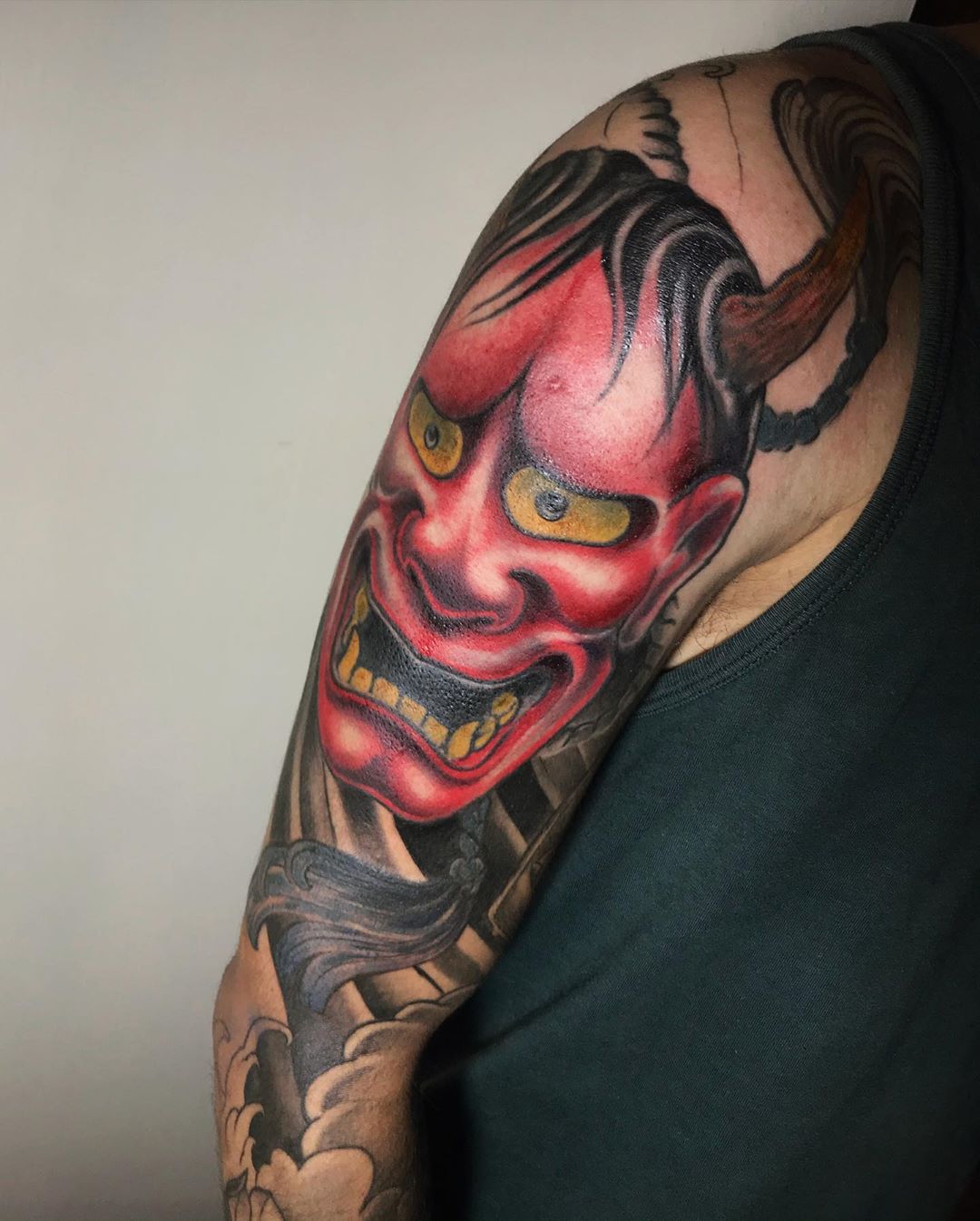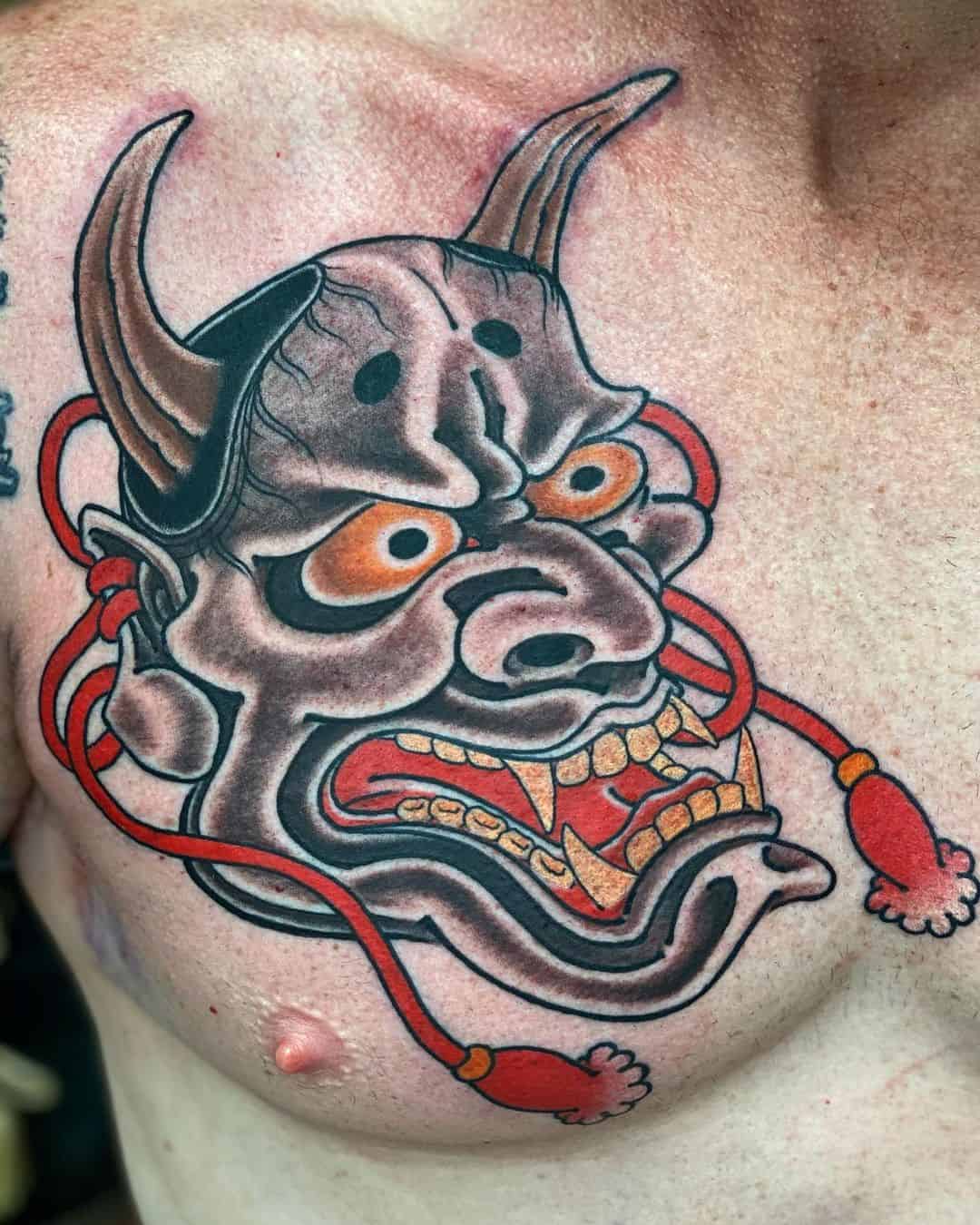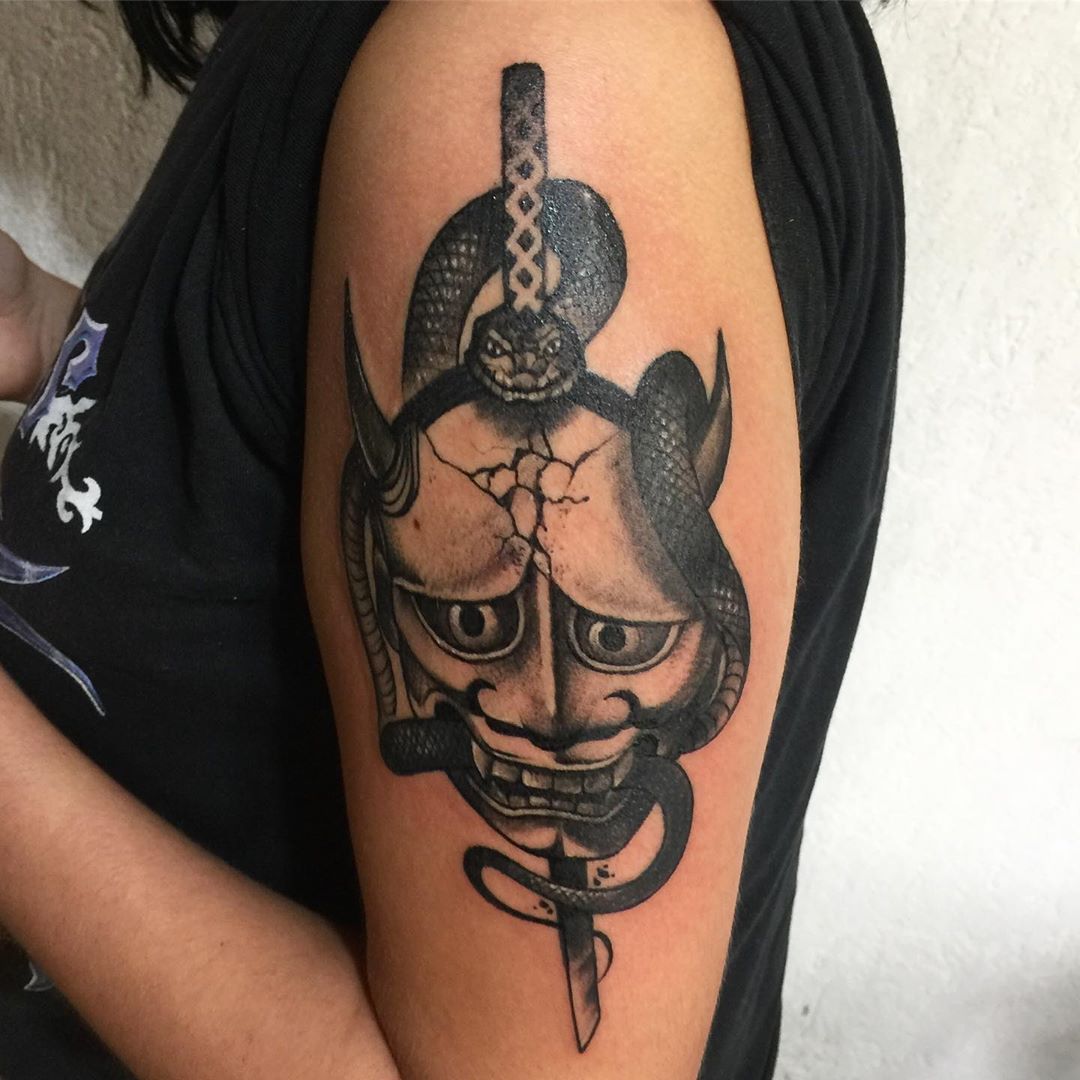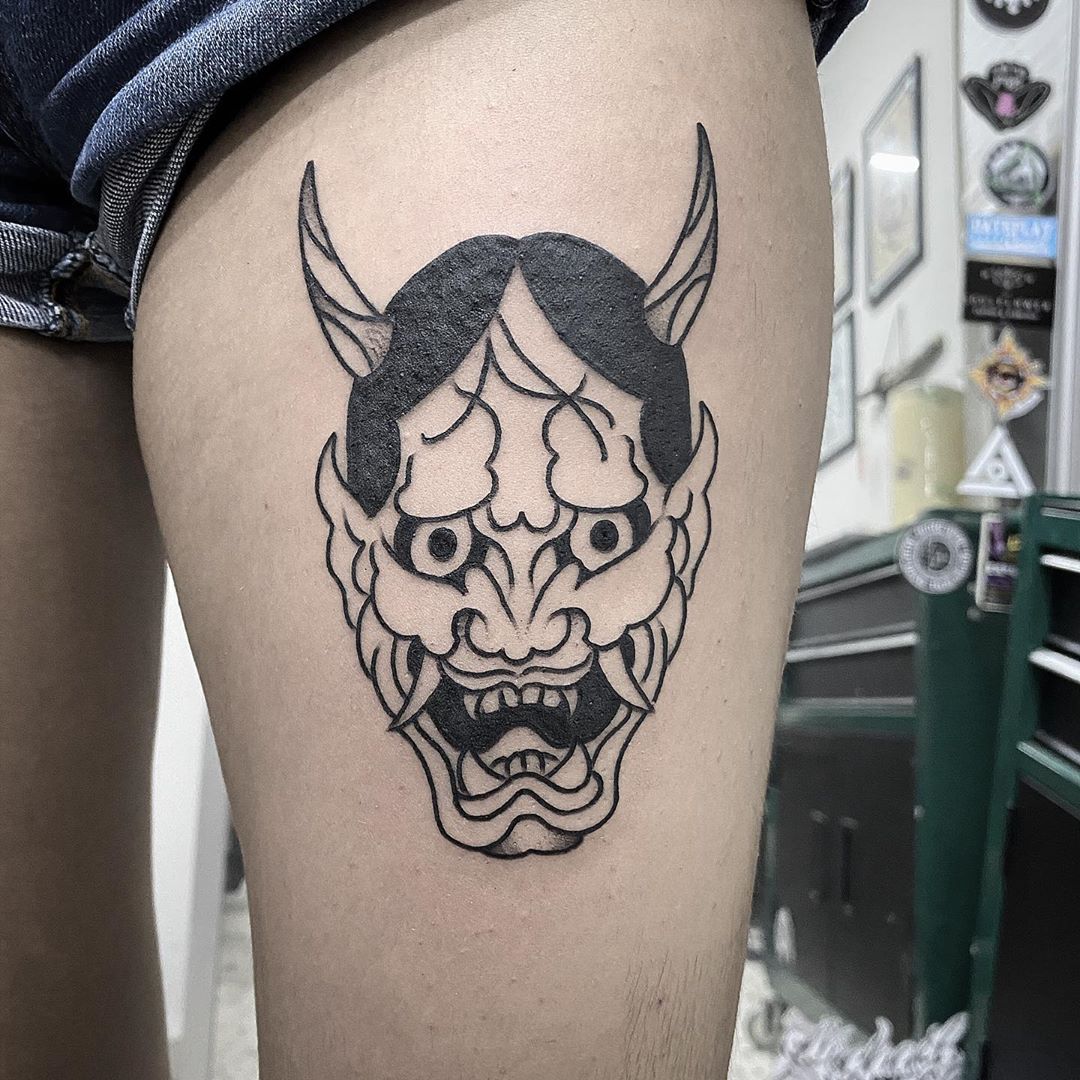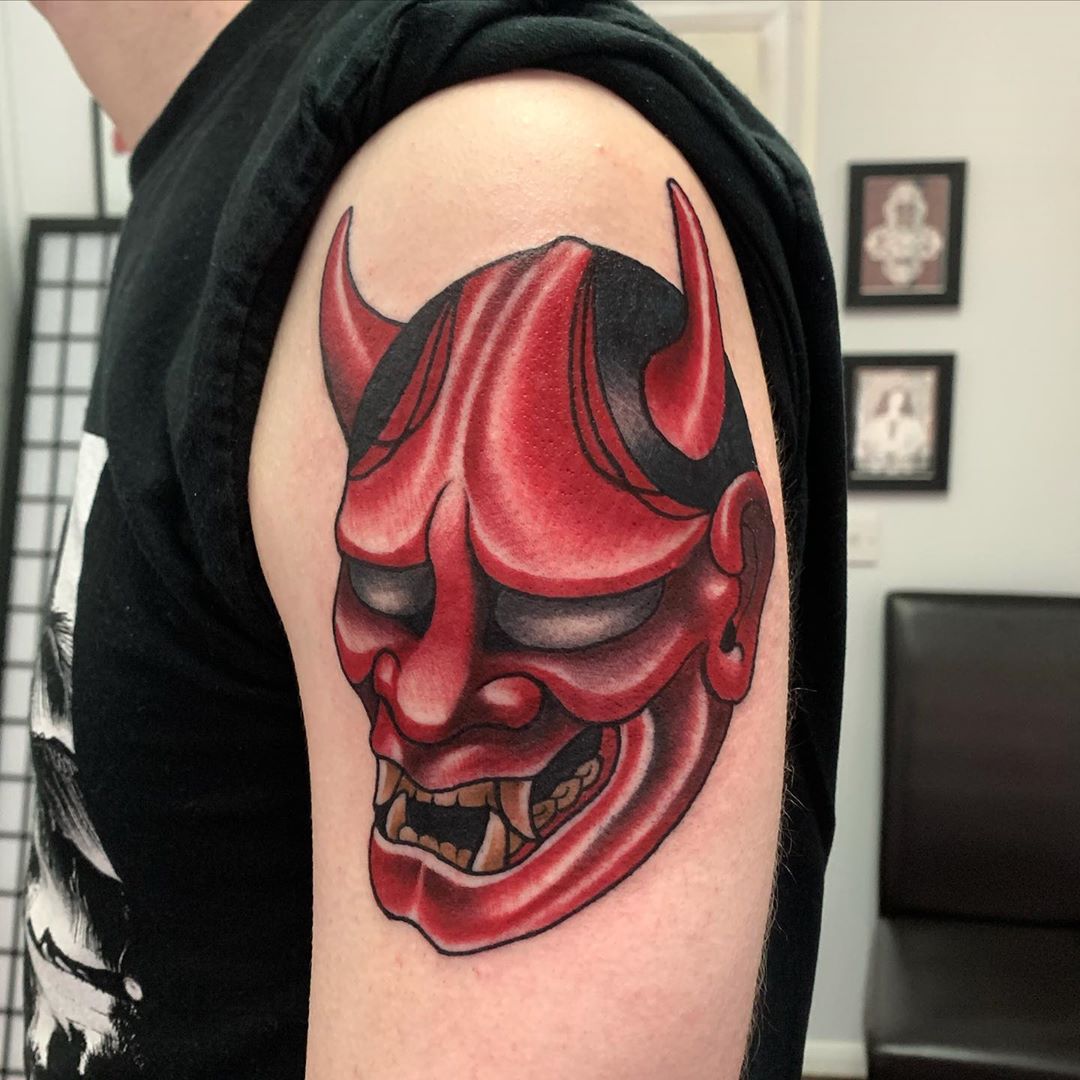Hanya Mask Tattoo - Hannya mask tattoos are often associated with feminine anguish and rage, stemming from their historical use in japanese. The hannya mask tattoo symbolizes a complex duality of emotions. On the one hand, it represents anger, jealousy, and emotional pain.
The hannya mask tattoo symbolizes a complex duality of emotions. Hannya mask tattoos are often associated with feminine anguish and rage, stemming from their historical use in japanese. On the one hand, it represents anger, jealousy, and emotional pain.
The hannya mask tattoo symbolizes a complex duality of emotions. On the one hand, it represents anger, jealousy, and emotional pain. Hannya mask tattoos are often associated with feminine anguish and rage, stemming from their historical use in japanese.
Hannya Mask Black And White Tattoo
The hannya mask tattoo symbolizes a complex duality of emotions. On the one hand, it represents anger, jealousy, and emotional pain. Hannya mask tattoos are often associated with feminine anguish and rage, stemming from their historical use in japanese.
101 Amazing Hannya Mask Tattoo Designs! Outsons Men's Fashion Tips
Hannya mask tattoos are often associated with feminine anguish and rage, stemming from their historical use in japanese. The hannya mask tattoo symbolizes a complex duality of emotions. On the one hand, it represents anger, jealousy, and emotional pain.
62+ Japanese Hannya Mask Tattoos Japanese mask tattoo, Japanese
On the one hand, it represents anger, jealousy, and emotional pain. Hannya mask tattoos are often associated with feminine anguish and rage, stemming from their historical use in japanese. The hannya mask tattoo symbolizes a complex duality of emotions.
UPDATE 36 Powerful Hannya Mask Tattoos (August 2020)
On the one hand, it represents anger, jealousy, and emotional pain. Hannya mask tattoos are often associated with feminine anguish and rage, stemming from their historical use in japanese. The hannya mask tattoo symbolizes a complex duality of emotions.
60+ Hannya Mask Tattoos History, Meanings & Tattoo Designs
Hannya mask tattoos are often associated with feminine anguish and rage, stemming from their historical use in japanese. On the one hand, it represents anger, jealousy, and emotional pain. The hannya mask tattoo symbolizes a complex duality of emotions.
Japanese Hannya Mask Tattoos Meaning & Designs • Tattoodo
The hannya mask tattoo symbolizes a complex duality of emotions. On the one hand, it represents anger, jealousy, and emotional pain. Hannya mask tattoos are often associated with feminine anguish and rage, stemming from their historical use in japanese.
60+ Hannya Mask Tattoos History, Meanings & Tattoo Designs
Hannya mask tattoos are often associated with feminine anguish and rage, stemming from their historical use in japanese. The hannya mask tattoo symbolizes a complex duality of emotions. On the one hand, it represents anger, jealousy, and emotional pain.
UPDATE 36 Powerful Hannya Mask Tattoos (August 2020)
The hannya mask tattoo symbolizes a complex duality of emotions. Hannya mask tattoos are often associated with feminine anguish and rage, stemming from their historical use in japanese. On the one hand, it represents anger, jealousy, and emotional pain.
UPDATE 36 Powerful Hannya Mask Tattoos (August 2020)
Hannya mask tattoos are often associated with feminine anguish and rage, stemming from their historical use in japanese. On the one hand, it represents anger, jealousy, and emotional pain. The hannya mask tattoo symbolizes a complex duality of emotions.
UPDATE 36 Powerful Hannya Mask Tattoos (August 2020)
Hannya mask tattoos are often associated with feminine anguish and rage, stemming from their historical use in japanese. On the one hand, it represents anger, jealousy, and emotional pain. The hannya mask tattoo symbolizes a complex duality of emotions.
The Hannya Mask Tattoo Symbolizes A Complex Duality Of Emotions.
On the one hand, it represents anger, jealousy, and emotional pain. Hannya mask tattoos are often associated with feminine anguish and rage, stemming from their historical use in japanese.
